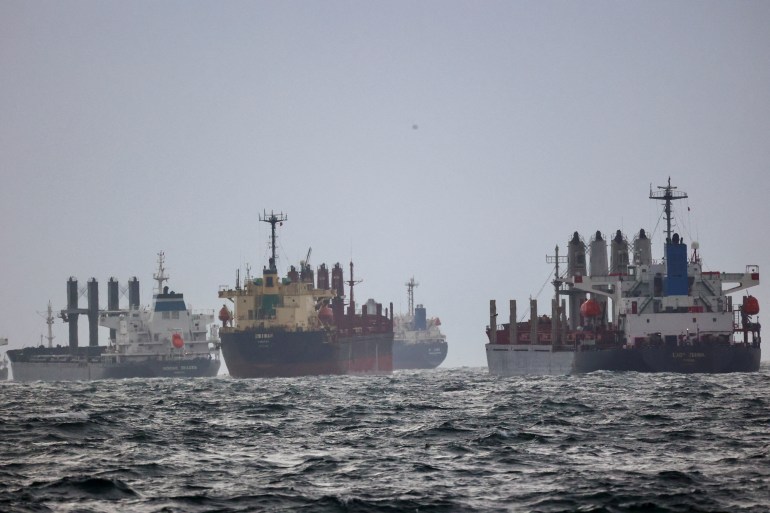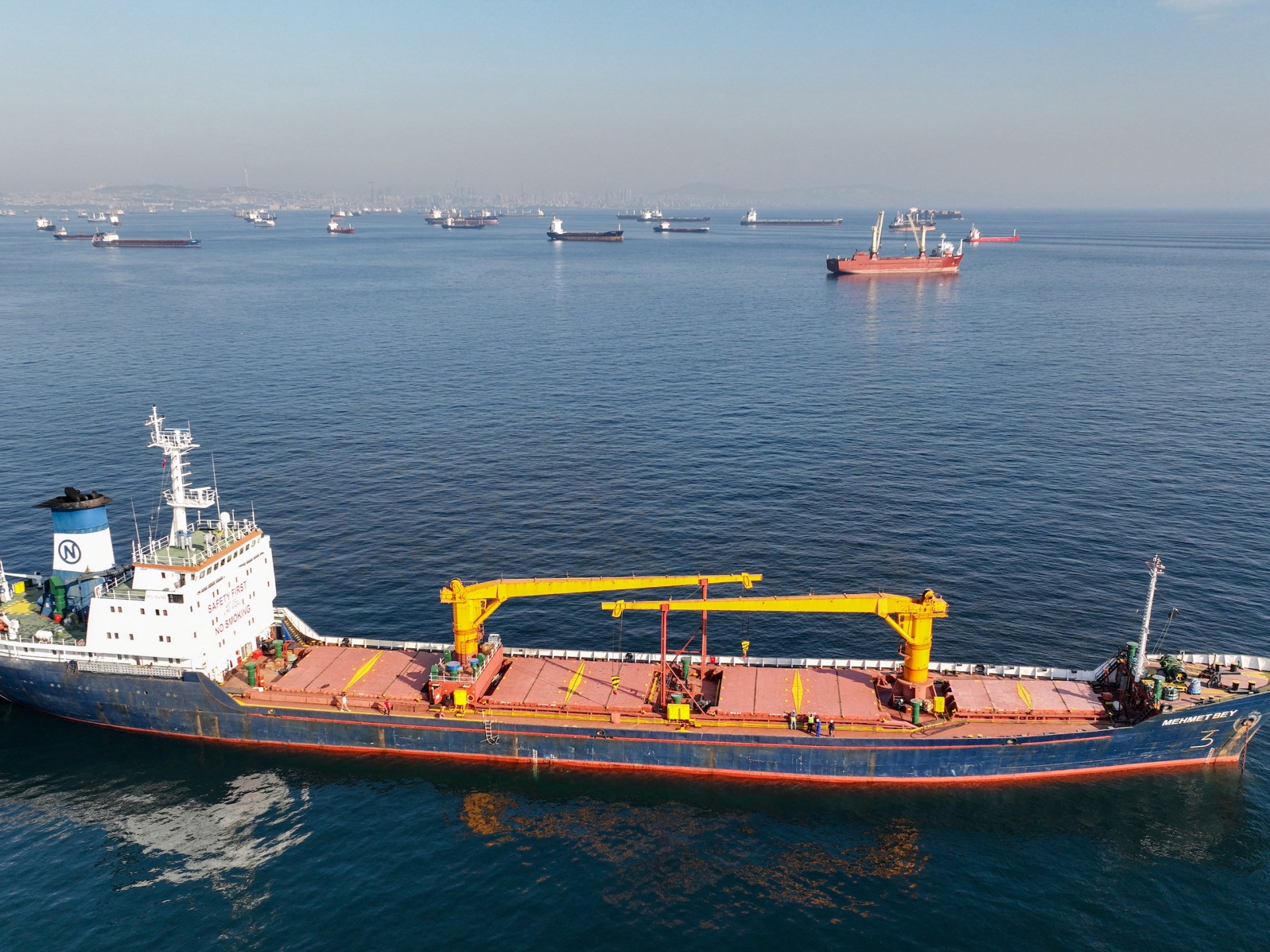Ukraine faces grain export problems despite ship checks resuming
Inspections of ships carrying Ukrainian grain from the Black Sea have resumed under a UN-brokered deal but Kyiv struggles to secure an extension of the agreement, as well as facing a widening import ban in Eastern Europe.
Bulgaria became the fourth European Union member state in the region to block Ukrainian grain imports on Wednesday, hoping to protect local farmers following an influx of cheaper supplies since Russia’s invasion of Ukraine in February last year.
But there was some relief for Kyiv as Romania, a key trade partner, stopped short of banning imports, even as it tightened controls on the transit of Ukrainian grain.
Kyiv and its allies blamed the latest halt to ship inspections in the Bosphorus this week on Moscow, which, in turn, blamed Ukraine and the United Nations.
Ukrainian Deputy Prime Minister Oleksandr Kubrakov wrote on Facebook that “ship inspections are being resumed, despite the RF’s [Russian Federation’s] attempts to disrupt the agreement”.
The Joint Coordination Centre in Istanbul that oversees operations said that “inspections are already at work.”

The Black Sea Grain Initiative, reached with UN and Turkish mediation last July, unblocked three Ukrainian Black Sea ports five months after Russia’s invasion.
The deal was designed to alleviate a global food crisis, as well as to support Ukraine – whose economy has relied heavily on agricultural exports.
Russia has said it has committed to the initiative only until May 18, and complained that a separate deal meant to ease its own agricultural and fertiliser exports – which are not covered by Western sanctions against Moscow – has not been upheld.
Ukrainian Agriculture Minister Mykola Solsky told reporters that talks were taking place to get the deal extended next month. But, making clear no immediate breakthrough was expected, Solsky said, “Let’s give them time.”
He gave no details of the talks. Russian Foreign Minister Sergey Lavrov is due to discuss the grain export deal with UN Secretary-General Antonio Guterres in New York next week.
Import bans
Kyiv has also been trying to secure an agreement from several countries to lift restrictions on imports of Ukrainian grain and food products that were announced recently.
European Commission President Ursula von der Leyen wrote a letter to the leaders of Poland, Hungary, Romania, Slovakia and Bulgaria with a set of proposals that she said “responds specifically to the concerns of front-line member states and stakeholders, including farmers, and will allow us to react even quicker in the future”.
The letter acknowledged the issues that farmers encountered after the EU lifted duties on Ukrainian grain to ease exports when Russia’s war in Ukraine choked off shipments through traditional routes. Relaxing the tariffs led to unintended export surges and, as a result, lower prices that cut into farmers’ incomes.
The European Commission’s proposals, which were to be further worked out during talks later on Wednesday, built on an initial support package of 56.3 million euros ($61.7m) for the most affected farmers in the front-line countries, with the possibility of a second package of 100 million euros ($109.3m).
The EU is also preparing more technical measures to keep the concerns of farmers from turning into a geopolitical problem that would make the EU look weak and divided as Russia continued to occupy large swaths of neighbouring Ukraine.
Bulgaria on Wednesday became the latest European country to temporarily ban imports of Ukrainian grain and other agricultural products, excluding goods in transit that are destined for export to other countries.
Hungary, Poland and Slovakia adopted similar bans, but Warsaw went further than others by also prohibiting the transit of Ukrainian grain through its territory.
Poland agreed on Tuesday to lift the transit ban after talks with Kyiv and transit of Ukrainian grain will resume at midnight on Thursday night, Poland’s development ministry was cited as saying by state-run news agency PAP on Wednesday.
Poland and Romania will now monitor and seal Ukrainian grain cargoes that cross its territory in transit, a measure that is insufficient to satisfy all Ukrainian farmers.
“We do not know what the process will be, how it will work and what will work,” Volodymyr Bondaruk, a farmer in western Ukraine, told Reuters.
“This will enable large and medium agricultural holdings to sell their products, but it will be very difficult for small farmers.”




